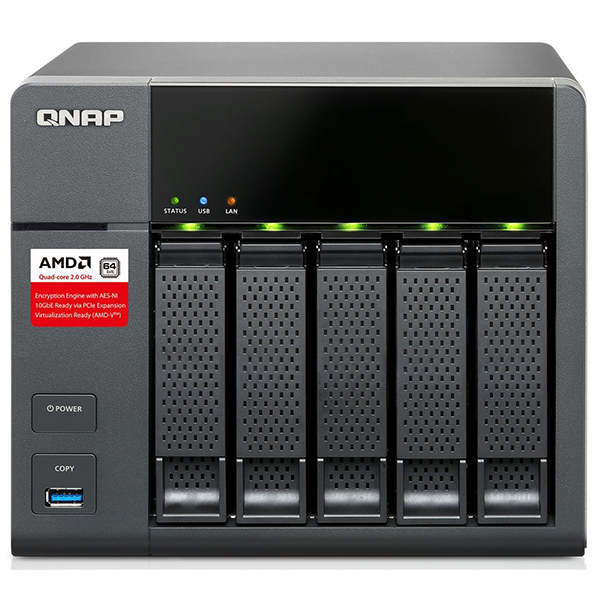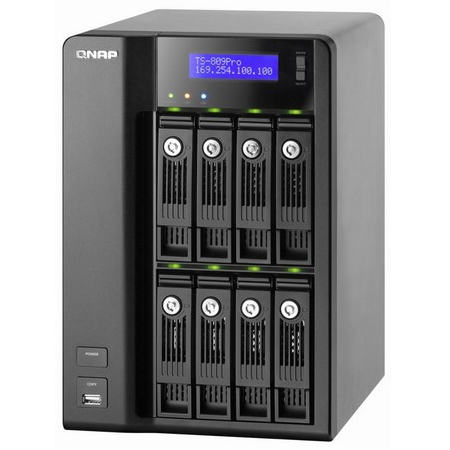Asustor AS5108T NAS Review
The Asustor AS5108T provides high network traffic performance with existing gigabit networks. This model's four Ethernet ports can aggregate for 10GbE-like transfers.
Why you can trust Tom's Hardware
Four-Corner Testing
Sequential Performance
We have a limited number of high drive-count systems tested with GbE interfaces. Many of this platform's contemporaries either ship with 10GbE or offer it as an option.
All of the systems in today's review are filled with Seagate NAS 4TB disks in RAID 6, our preference for appliances with six or more drive bays. The QNAP TS-563 is actually a five-bay system, but we ran it in RAID 6 as an extra comparison point. All three contenders run from a single GbE port and through an enterprise switch.
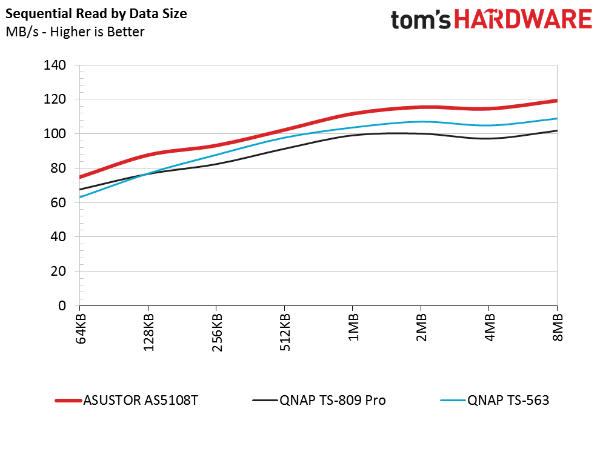
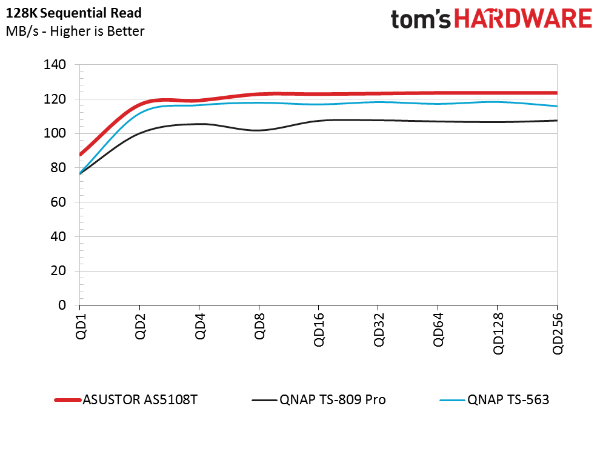
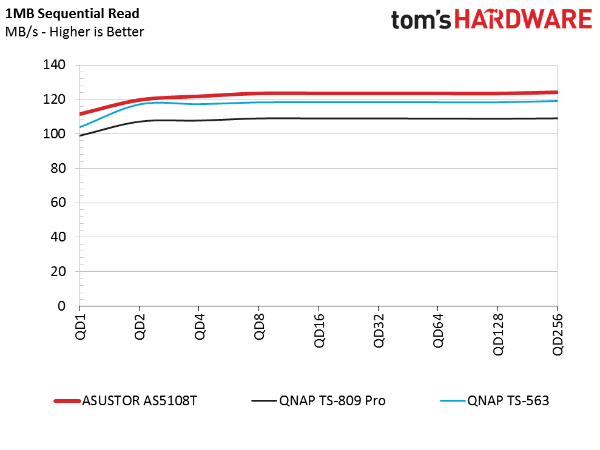
Given what we know about Asustor's typical performance, it doesn't surprise us to see the AS5108T leading our sequential read tests. The system pulls away even more when we measure random read IOPS.
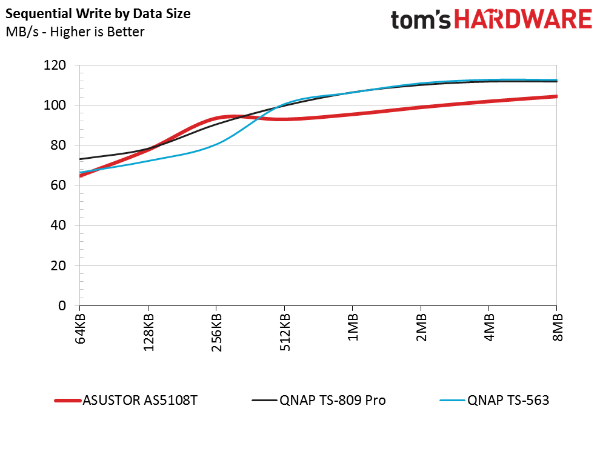
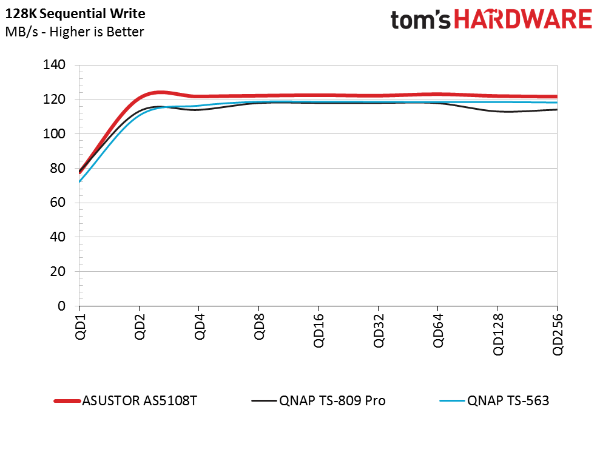
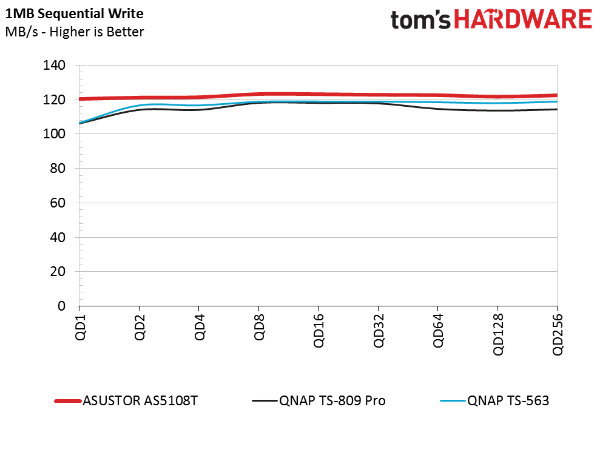
The 128KB and 256KB block sizes are the only two where the AS5108T outperforms its competition when writing sequential data. When we look at 1MB blocks, the AS5108T holds steady at 120 MB/s and doesn't let up.
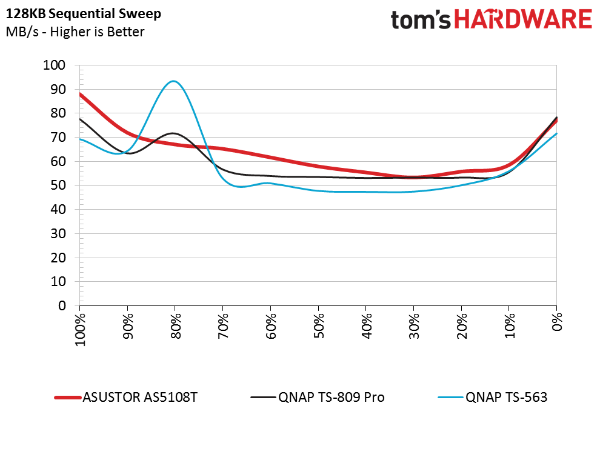
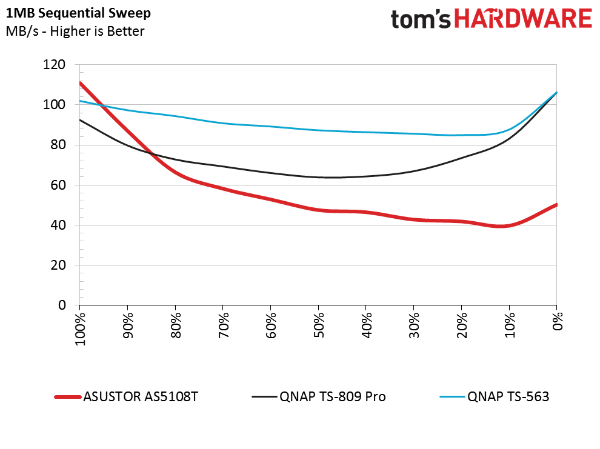
Asustor is aggressive with its buffers. In our 128KB mixed workload, the AS5108T performs well, and in most read/write mixes outperforms the two QNAP configurations. The 1MB mixed workload goes the other way, where performance drops off as sequential writes are added to the mix. I suspect that the buffer filled, forcing the system to pass cached and incoming data to the eight drives at the same time. This would explain the low performance as write traffic increased.
Random Performance
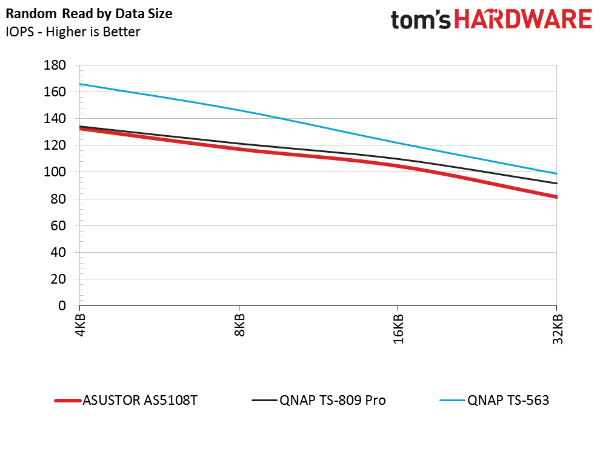
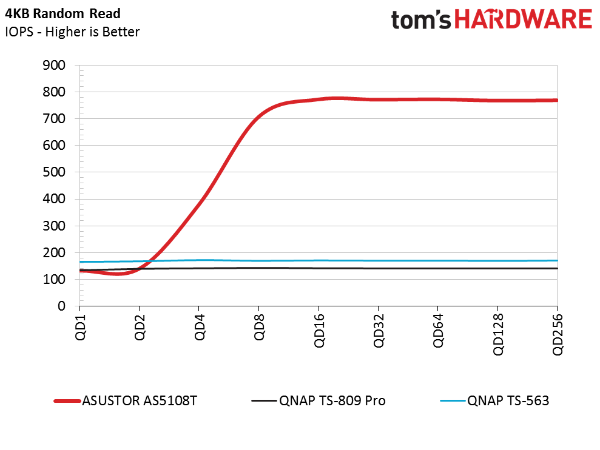
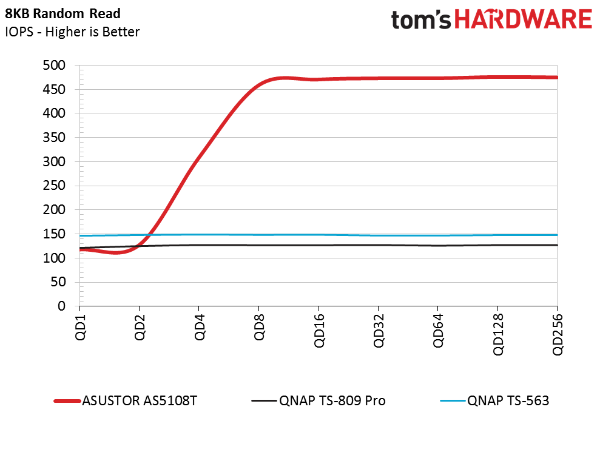
This set of charts shows why we measure performance in different ways. Reading data from the three systems using various block sizes shows the AS5108T under its QNAP competition.
In the 4KB and 8KB random read tests, where we scale the workload by queue depth, storage behavior changes quickly. Asustor's AS5108T caches the reads and delivers SSD-like random performance. For this to happen under real-world conditions, the repeat rate has to be high. But when you're working with that type of workload, this system truly delivers high random read IOPS without a dedicated SSD for cache.
Get Tom's Hardware's best news and in-depth reviews, straight to your inbox.
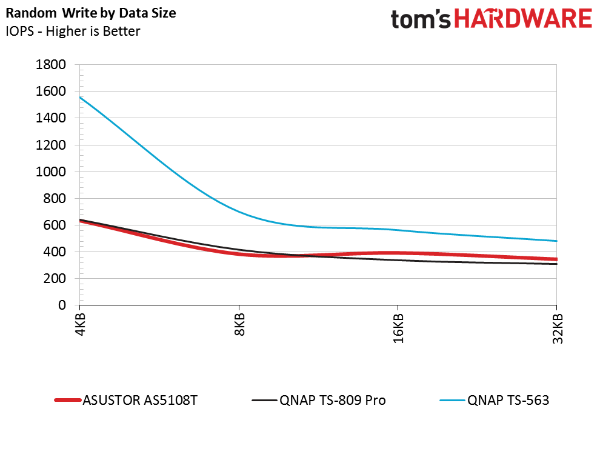
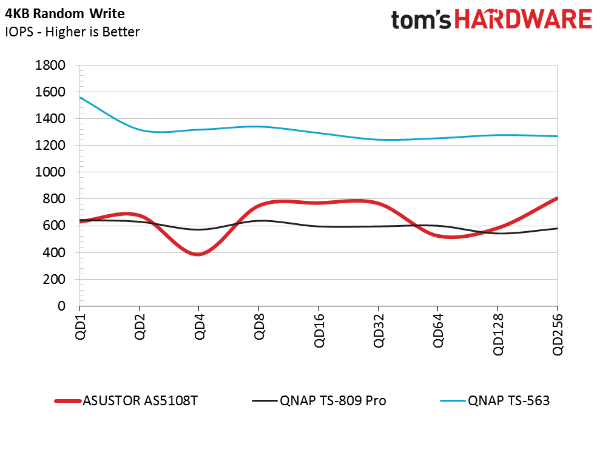
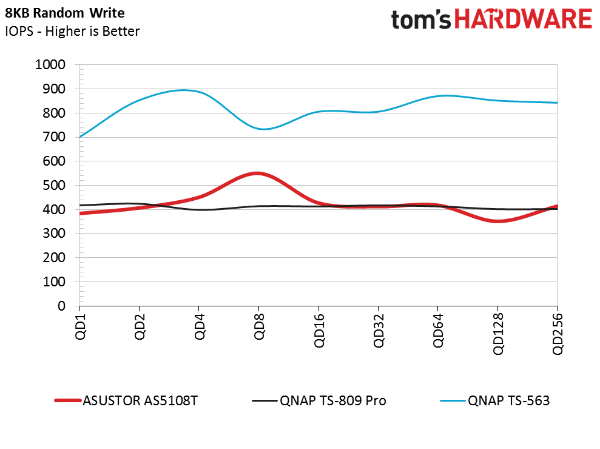
But as we saw from our sequential write tests, the AS5108T is brought back to Earth when it comes time to write random data. Gone are the explosive random transfers, though the numbers we do measure are still impressive.
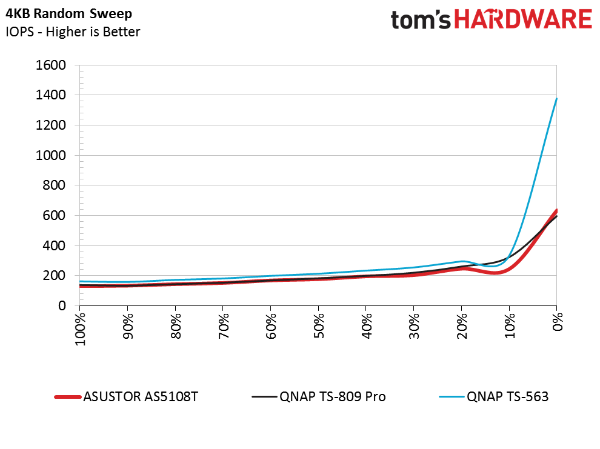
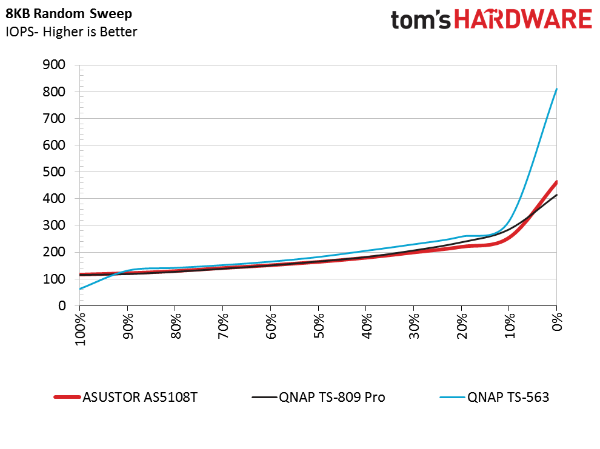
Asustor's AS5108T falls in line with many other products when we mix the reads and writes. These three boxes show how difficult it can be to stand out, faced with the limitation of gigabit Ethernet. Ten GbE allows much more separation between appliances.
Current page: Four-Corner Testing
Prev Page A Closer Look Next Page SMB, iSCSI & Standard Server Workloads
Chris Ramseyer was a senior contributing editor for Tom's Hardware. He tested and reviewed consumer storage.
-
SirGCal I didn't see where they mentioned WHO made the NICs.. are they Intel, Realtech, Maxwell, etc? Or some of each? Only that they could be bundled...Reply
Also, was it ECC memory? -
jimmysmitty Reply16843464 said:I didn't see where they mentioned WHO made the NICs.. are they Intel, Realtech, Maxwell, etc? Or some of each? Only that they could be bundled...
Also, was it ECC memory?
I can't find anything stating what NICs they use. I would prefer Intel though.
And it is not ECC RAM. Celerons do not support ECC. Only Xeons do. -
expunged ReplyI didn't see where they mentioned WHO made the NICs.. are they Intel, Realtech, Maxwell, etc? Or some of each? Only that they could be bundled...
Also, was it ECC memory?
non ecc memory "SO-DIMM DDR3"
does not say on nic
more info here
http://www.asustor.com/product?p_id=36&lan=en#tab3 -
DongleKin Reply16843464 said:I didn't see where they mentioned WHO made the NICs.. are they Intel, Realtech, Maxwell, etc? Or some of each? Only that they could be bundled...
Also, was it ECC memory?
I can't find anything stating what NICs they use. I would prefer Intel though.
And it is not ECC RAM. Celerons do not support ECC. Only Xeons do.
There are plenty of non-Xeons that support ECC in Intel's product line. Core i3s, Pentiums, Celeron, Atoms. However, the Celeron J1900 (which is probably in this NAS) does not. -
Aris_Mp In the AS5102T model the pair of NICs is controlled by a couple of Broadcom ICs (BCM5778). This model has 4x Ethernet ports so for the second couple it might use different controllers.Reply
